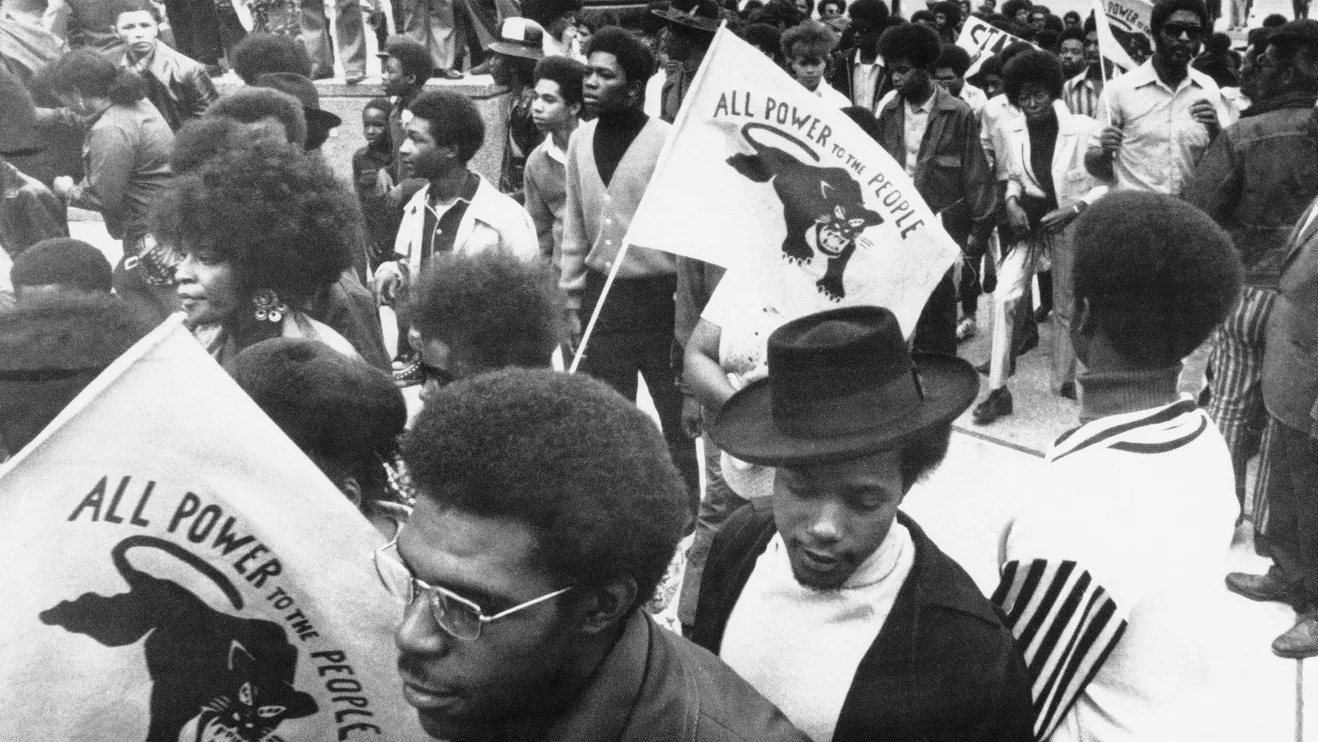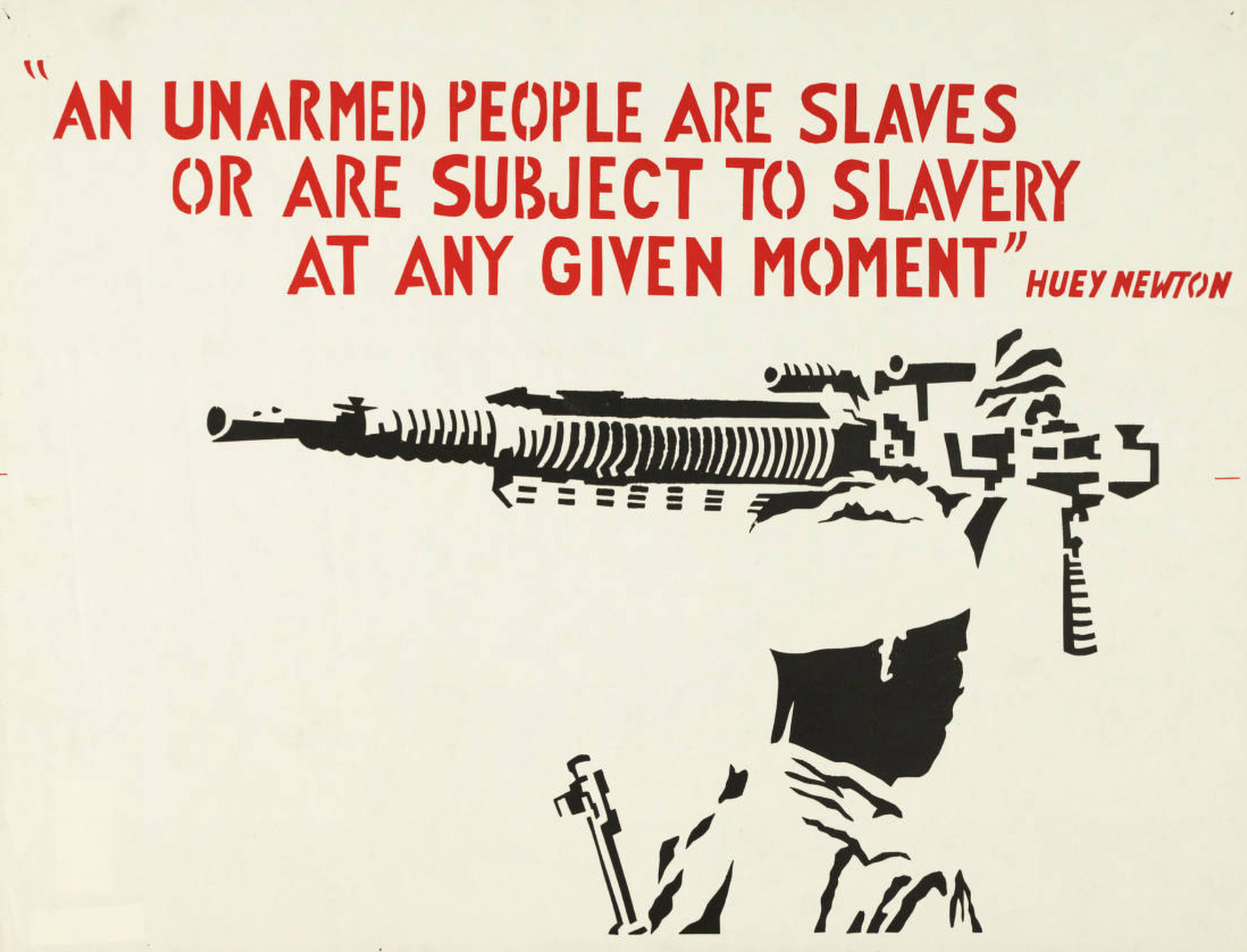

Why We Never Talk About Black Americans Right to Bear Arms
source link: https://readcultured.com/why-we-never-talk-about-black-americans-right-to-bear-arms-2d489aef78d6
Go to the source link to view the article. You can view the picture content, updated content and better typesetting reading experience. If the link is broken, please click the button below to view the snapshot at that time.
RACISM + POLITICS
Why We Never Talk About Black Americans Right to Bear Arms
On the anti-Black racism in the Second Amendment debate

Do Black people have the right to defend themselves, to bear arms in America? Because in the wake of the Buffalo Massacre and the Rob Elementary School shooting, we've been having this national conversation about gun ownership and second-amendment protections. But, "often absent in these debates is the intrinsic anti-Blackness of the unequal enforcement of gun laws, and the relationship between appeals to gun rights and the justification for militia violence." One study indicated federal tough-on-guns programs targeted minority communities for selective enforcement. Throughout history, White Americans intentionally disarmed Black Americans, which is why we run afoul when we have race-neutral conversations on gun reform.
When The Black Panther Party for Self-Defense protested police brutality in California during the 60s, they showed up in the state capital with ".357 Magnums, 12-gauge shotguns, and .45-caliber pistols and announced, "The time has come for Black people to arm themselves." So, how did White Californians respond? White backlash was swift — the National Rifle Association lobbied for reforms. Racism became the spark that ignited a movement for an assault weapons ban. A 1967 headline in the San Francisco Examiner gives us the flavor of the moment: "Oakland's Black Panthers Wear Guns. Talk Revolution." Even More frightening: "It's All Legal."
But, unlike the dishonorable Confederates who used violence to tear this nation apart at the seams or the modern-day conservatives and right-wing extremists who stormed the capital on January 6, 2021, to disrupt the peaceful transfer of power, the Black Panther Party never sought violent confrontation with the government. So, why did the National Rifle Association fear The Black Panther Party of Self Defense enough to change their tune on gun reform?
White Americans' fear of Black American gun ownership began as all American stories do — during the Antebellum era. Enslavers feared armed Black people would fuel Southern uprisings. To maintain the profitable chattel slavery system, White people made sure Black people did not have weapons to defend or free themselves. Slave codes, which evolved into Jim Crow legislation after the Civil War, maintained draconian measures that stopped Black people from peacefully assembling in any group larger than three people. As a result, America's debate about who gets bear arms is tinged with an unjustifiable fear of armed Black citizens.
And perceptions about public safety and race continued to muddy the conversation about guns in America. Scholars noted that firearm regulation was "never intended to be applied to the White population," and politicians, weaponizing their White constituents' fear, were united against Black Americans' right to bear arms. White Americans spun a web of anti-Black stereotypes so thick that at times, even they can't separate fact from fiction. "Are Black people more dangerous," White Americans racistly ponder.
Black Americans have been crystal clear about our intent. As Malcolm X suggested: "We declare our right on this earth to be a human being, to be respected as a human being, to be given the rights of a human being in this society, on this earth, in this day, which we intend to bring into existence by any means necessary." If Black people had equal rights in America, White people wouldn't fear anything Malcolm X had to say.
If history is any indication, the day of violent retribution White Americans fear will never come to pass. The idea of a "race war" is white supremacist propaganda that implies a level of "bothsiderism" that simply doesn't exist. During the Antebellum era, enslaved people rebelled to pursue freedom, not warrantless violence. For instance, when Charles Deslondes led The Enslaved People's Uprising of 1811, Black people demanded freedom. Yet, New Orleans streets are named after Claiborne and Iberville, the White men who brutally squashed their hopes of freedom.
Keeping Black people unarmed made it relatively easy for groups of armed White men to squash uprisings or any resistance to the tyranny Black Americans experienced. While most White Americans wouldn't dare blame Jewish people for their uprisings against the Nazi regime in concentration camps and ghettos, many White Americans refuse to see the legitimacy of Black self-defense, so school children don't learn about Black Americans' resistance to slavery. But that's the problem in a nutshell. Throughout history, White people wanted the right to bear arms, often hurting Black people, all the while trying to keep guns away from Black people, stripping away their right to self-defense.
Groups like The Black Panther Party did not preach the gospel of violence. Yet, White people continue to favor their cherry-picked Dr. Martin Luther King Jr. quotes about peace to Malcolm X and Huey P. Newton's self-defense rhetoric because they don't believe Black people should have the right to defend themselves. Let that marinate. Our country is so racially divided that the idea of a Black person prepared to defend themselves terrifies White people. If you don't intend to harm Black people, then you have no reason to fear Black people.
Remember, Black Americans' self-defense wouldn't be considered revolutionary if it weren't for racism. As Huey Newton said, "unarmed people are slaves or are subject to slavery at any given moment." Without a national reckoning on slavery, Black freedom does not feel secure, and many Black people regard gun ownership as necessary. Leaving them out of the conversation will not end well for those seeking structural reforms.

The California legislature passed the 1967 Mulford Act in response to the Black Panther Party's armed protest at the state capital, making it illegal to carry loaded firearms openly. As much as modern-day liberals and progressives brag about states like California having the strictest gun laws in the country, these measures, supported by the NRA, were rooted in anti-Black racism. As we engage in this national conversation on gun ownership, we should remember that when The Black Panther Party protested police brutality, the NRA responded by advocating for sweeping gun reform.
In exploring the concept of self-defense, Carol Anderson wrote in Chapter 9 of The 1619 Project, "many white people in America saw the Panthers and the uprisings in Watts, Detroit, and Newark not as protests against police violence but as indications of dangerous Black pathology." For example, one White woman from Joliet, Illinois, noted that when she saw Black protests, she considered them "savages." In their collective failure to recognize the legitimacy of Black Americans' self-defense, many White Americans have embraced racist fear-mongering.
So, back to the core question, do Black Americans have the right to bear arms in self-defense. Technically, yes, but realistically "no." People still portray Black self-defense movements as radical in America. And White politicians like Trump keep the stereotypes alive and kicking. At one point, he called Black Lives Matter protesters "thugs" and "terrorists." His rhetoric was part of a long-term strategy, to portray Black Americans' pursuit of equity as a direct, violent threat to Whiteness.
President Biden said "the Second Amendment was never absolute," and he's right. The amendment does not mention personal gun ownership. Instead, it refers to "a well-regulated militia." However, given that America has more guns than people, it's clear that the NRA's interpretation of the Second Amendment dominates the conversation. At this point, gun lobbyists seem more powerful than the politicians we elect. While America desperately needs common-sense gun reforms, and most Americans agree we need background checks and red-flag laws, we can't ignore how police enforce laws with prejudice. Just as the 94' crime bill contributed to mass incarceration, color-blind gun legislation could cause further harm to Black communities.
It's sad to say, but the quickest way to get conservatives to agree on gun reform would be for Black Lives Matter to host armed protests like The Black Panther Party for Self-Defense. I mean, we saw how the NRA reacted in the 60s. The pattern is clear when Black people carry guns openly, White people become afraid, and find the will to pass reforms. In America, 98% of mass shooters are men, many of them are White. However, gun violence is a problem in Black communities as well. "They experience 10 times the gun homicides, 18 times the gun assault injuries, and nearly three times the fatal shootings by police of White Americans." While Americans long for reforms that can save lives, the truth is a racially selective implementation of tough-on-gun laws complicates the scenario.
And it seems we never talk about Black Americans' right to bear arms because Black self-defense is still a controversial topic. In America's attempt to create a safer country, we must also remember that our ideas about public safety and who has the right to self-defense are rooted in racism. "Whites are significantly more successful claiming self-defense when their attacker is Black than Blacks are when fighting back against an attacker who is White."
Until America stops running from its shadow and confronts racism, gun-reform legislation has no chance of equitable implementation. As a nation, we should stop talking past Black Americans in the conversation about gun reform because we are the most likely to be impacted by gun violence from police and armed citizens. To make positive social change, politicians, community leaders, and media outlets need to talk to Black Americans about how they feel about gun violence in their communities, solutions they've considered, and concerns they have. Because as it stands, we're having a color-blind conversation about gun ownership that ignores the disproportionate implementation. If we're going to make America safer, we can't rely on race-neutral policies. Black Americans' right to bear arms deserves to be part of the conversation.
How a Free Breakfast Became the U.S. Biggest' Threat'Iffeeding children is wrong, then we shouldn't want to be right
🌹Learn more about the author here.
🖊Sign up to read all my stories and thousands more.
Recommend
About Joyk
Aggregate valuable and interesting links.
Joyk means Joy of geeK